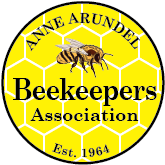Welcome to beekeeping!
Request a Mentor (before requesting, please read this page)
Volunteer to Mentor (before volunteering, please read this page)
AABA has revised the mentoring program to match new beekeepers with someone who has had a hive for at least a year. This is someone you can get advice from and work with in order to get better results in your own bee yard. Below are the guidelines for 2022.
Please contact each other, and decide the best way to communicate (email, phone, text, or a mix – especially when pictures will help). If possible, meet to demonstrate management skills, especially during key times for bees (using proper precautions).
I hope this is a positive experience for both of you. If any problems should arise with your Mentor or Mentee, please contact me via email or phone immediately.
Mentor Coordinator: John Menocal
If you would like a mentor, please fill out the mentor request form rather then emailing directly.
Email: mentors@aabees.org
Guidelines
For questions, make efficient use of your time and your mentor’s time by researching first to have a plan in mind (best from your notes or the book). See if your plan is what your mentor would recommend based on the details of your situation and the season.
List question(s) clearly and include pictures when possible.
Have your most recent inspection notes with these key points:
-
-
- When did you last see evidence of a queen (eggs, very small larvae, or queen seen)?
- How big is the colony? When looking down between frames, how many spaces (seams) are filled with bees – this gives an approximation or size.
- How many frames of brood? Is it a small patch or full frames?
- Is the brood healthy (pearly white with small larva swimming in jelly)?
- Are there stores – frames with pollen and nectar/capped honey?
- Last varroa mite count? You need to rule out mites first.
-
Mentors are volunteers who agree to return Mentee phone calls or emails. They are a mentee resource to aid in your support and success. Your Mentor is assigned to advise and educate you. Mentors can provide invaluable insights based on their experience that can assist the Mentee in making a decision and selecting a course of action. Mentors are not assigned to tell you what to do and there is always a risk of failure. It is important to remember you are responsible for your own bees.
Mentees should respond to calls or emails from Mentors as soon as possible and not keep them waiting.
Mentors may invite Mentees to work bees together following COVID precautions. Most of us have full time jobs and work bees as leisure time permits. Mentees are encouraged to gain knowledge and experience by helping your Mentor with their beekeeping tasks like cleaning frames/supers, assembling frames/supers, cutting the grass around hives, moving hives, etc.
-
-
- If your Mentor is coming to your yard, be respectful of your Mentor’s time.
- Be prepared before your Mentor arrives.
- Get everything ready that you will need for that day’s visit. IE: Hive boxes, extra frames, smoker, work site, and whatever else will be needed that day.
-
Mentors are volunteers and may have full-time jobs, so he or she may not always be able to respond immediately.
Mentors and mentees should return calls and emails in a timely manner, but be respectful about the time of day when you call or text.
In addition to your mentor, the following resources are available:
-
-
- AABA Listserv is available, and you will usually get a response within an hour or so. To join, please email honeybeehives2019@gmail.com and include ‘add me to the AABA listserv’ in the email. All requests will receive a personal response.
- AABA meetings – monthly Zoom meetings with the first hour dedicated to new beekeeper questions and interactions and skill demonstrations. The second hour has a presentation.
- Maryland State Beekeepers Association (MSBA) is working with the University of Maryland BeeSquad to create classes to cover more advanced topics too – see mdbeekeepers.org.
-
With beekeeping (or any agriculture), there is risk of failure with any course of action, but there are valuable lessons to be learned from failures. Please remember that Beekeepers learn from their bees.
Mentor Guidelines
Mentors should advise and educate the Mentee. Explain the situations that exist and likely causes. The Mentor should encourage the Mentee to evaluate the situation and make decisions based on the Mentee’s goals and management style.
Mentors should plan to speak to the Mentees to address seasonal changes and needs. If you can go to their yard, fantastic. Plan on inviting them to your beeyard as the year goes on.
Mentors should respond to calls or emails from Mentees as soon as possible and not keep them waiting.
Mentors will not charge for their services.
If any problems should arise with your Mentee, contact me immediately.
March 2021
(adapted from BUMBA’s mentor guidelines by Kim Mehalick and “Getting Good Help” by Meghan Milbrath, ABJ July 2020)


